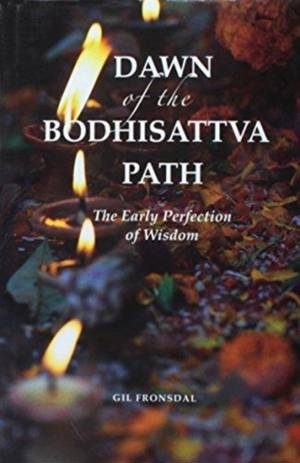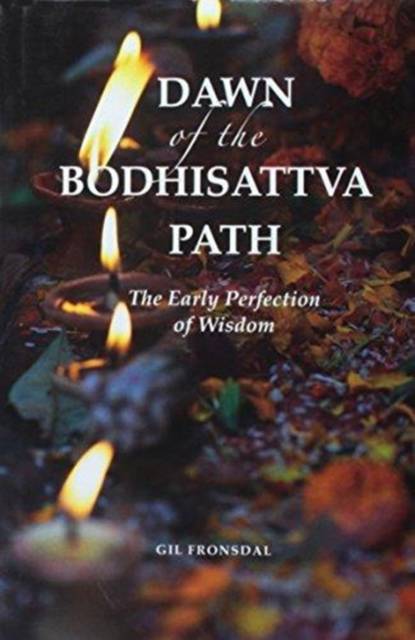
- Afhalen na 1 uur in een winkel met voorraad
- Gratis thuislevering in België vanaf € 30
- Ruim aanbod met 7 miljoen producten
- Afhalen na 1 uur in een winkel met voorraad
- Gratis thuislevering in België vanaf € 30
- Ruim aanbod met 7 miljoen producten
Zoeken
Omschrijving
The early history of the Mahāyāna movement has drawn a great deal of attention from scholars over the last half century. Among the various suggestions made about its origins are that it was initially a lay movement, a path of greater stringency for monastics, a stūpa cult, a practice of forest recluses, or even the result of influences from outside the Buddhist tradition. In this study Gil Fronsdal examines the Daoxing jing, a second-century Chinese translation of the Perfection of Wisdom in Eight Thousand Lines. The Daoxing jing is the earliest version of the Perfection of Wisdom scripture, one of the most important foundational texts of the Mahāyāna movement. In this study Fronsdal challenges many contemporary presumptions, including those about the characteristics of the aspiration for buddhahood and what it means to be a bodhisattva, and offers insight into the early formation of a strain of thought and practice that contributed to what eventually became the Mahāyāna as we know it today.
Specificaties
Betrokkenen
- Auteur(s):
- Uitgeverij:
Inhoud
- Aantal bladzijden:
- 238
- Taal:
- Engels
- Reeks:
Eigenschappen
- Productcode (EAN):
- 9781886439535
- Verschijningsdatum:
- 30/11/2014
- Uitvoering:
- Hardcover
- Formaat:
- Genaaid
- Afmetingen:
- 155 mm x 231 mm
- Gewicht:
- 476 g

Alleen bij Standaard Boekhandel
+ 132 punten op je klantenkaart van Standaard Boekhandel
Beoordelingen
We publiceren alleen reviews die voldoen aan de voorwaarden voor reviews. Bekijk onze voorwaarden voor reviews.







